Order of Founders of the Granville District

Member jure Moses Teague (1718–1799); member no. 44

Member jure Moses Teague (1718–1799); member no. 44
The Order of Founders of the Granville District is a hereditary society dedicated to honoring descendants of individuals who resided in the Granville District of North Carolina between 1663 and 1763. This lineage society celebrates the historical significance of the district and its settlers, who played a key role in the colonial development of the region.
The society fosters the preservation of historical records and promotes the study of the Granville District, its governance, and its impact on early American history. Members collaborate to ensure that the legacy of this unique area, governed semi-independently by John Earl Granville, remains a recognized part of North Carolina’s heritage.
Moses Teague was a prominent landowner and settler in Rowan County, North Carolina, during the colonial period. He played a significant role in the development of the Granville District, acquiring over 1,800 acres through land grants issued in the mid-18th century. These grants, concentrated along Abbott’s Creek, positioned Moses as a key figure in the settlement and agricultural expansion of the region.
Moses was the grandson of Edward Teague, an early Maryland settler who arrived in the Province of Maryland in 1675 as part of the headright system. Edward’s life as a frontier landowner in Cecil County laid the foundation for the Teague family’s westward migration, with Moses representing the third generation of Teagues to pursue opportunities in new territories.
Moses was born on March 3, 1718, in Cecil County, Maryland, and likely grew up in an environment shaped by farming, land speculation, and migration. By the mid-18th century, Moses had moved southward, eventually settling in Rowan County, North Carolina, where he established himself as a major landholder.
Between 1756 and 1759, Moses Teague acquired at least four documented land grants in the Granville District, totaling over 1,800 acres. These grants included significant tracts along Abbott’s Creek, a key waterway in the region. The clustering of four grants within a few weeks in early 1759 suggests deliberate planning to consolidate contiguous parcels, creating a unified estate suitable for farming and resource management.
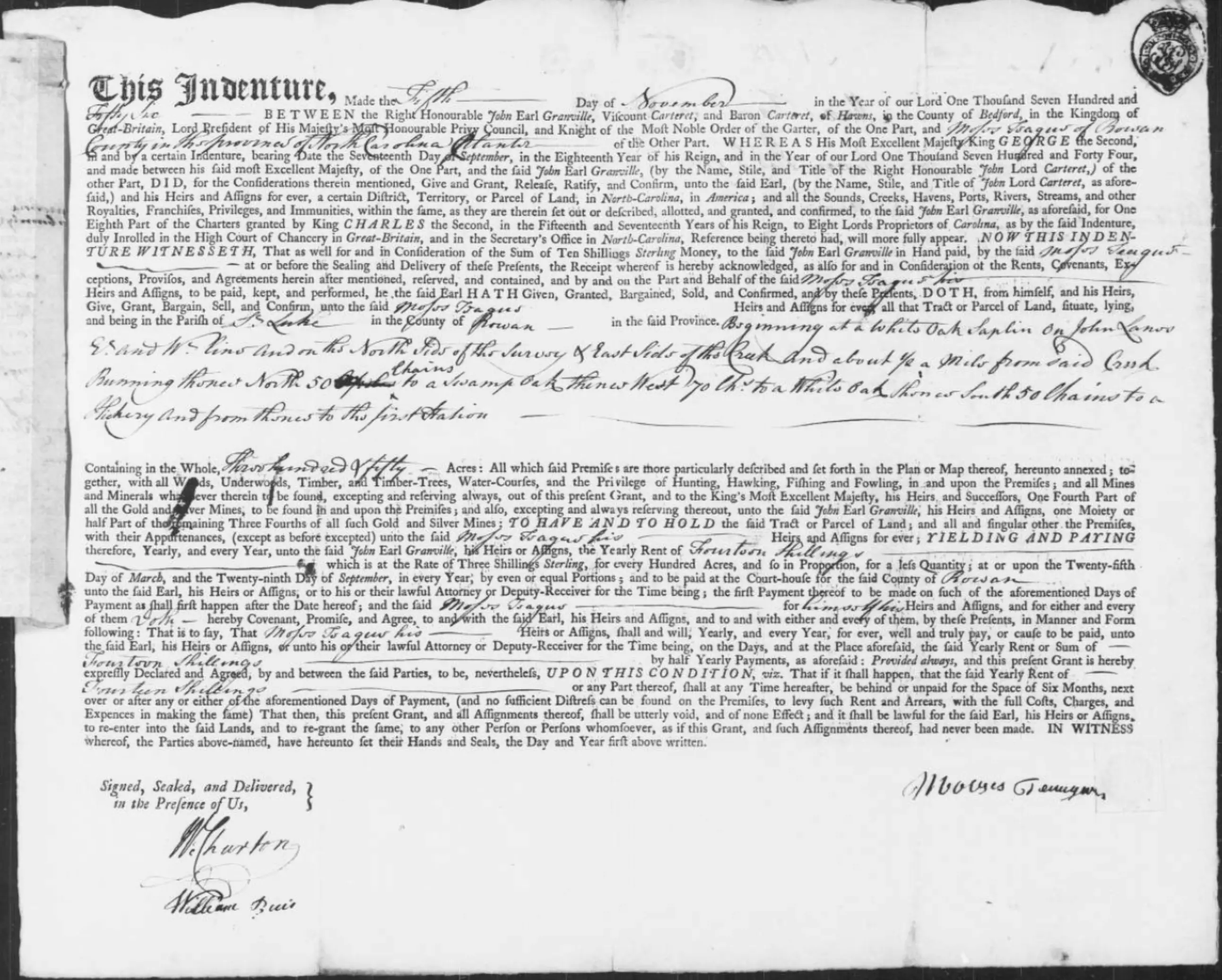
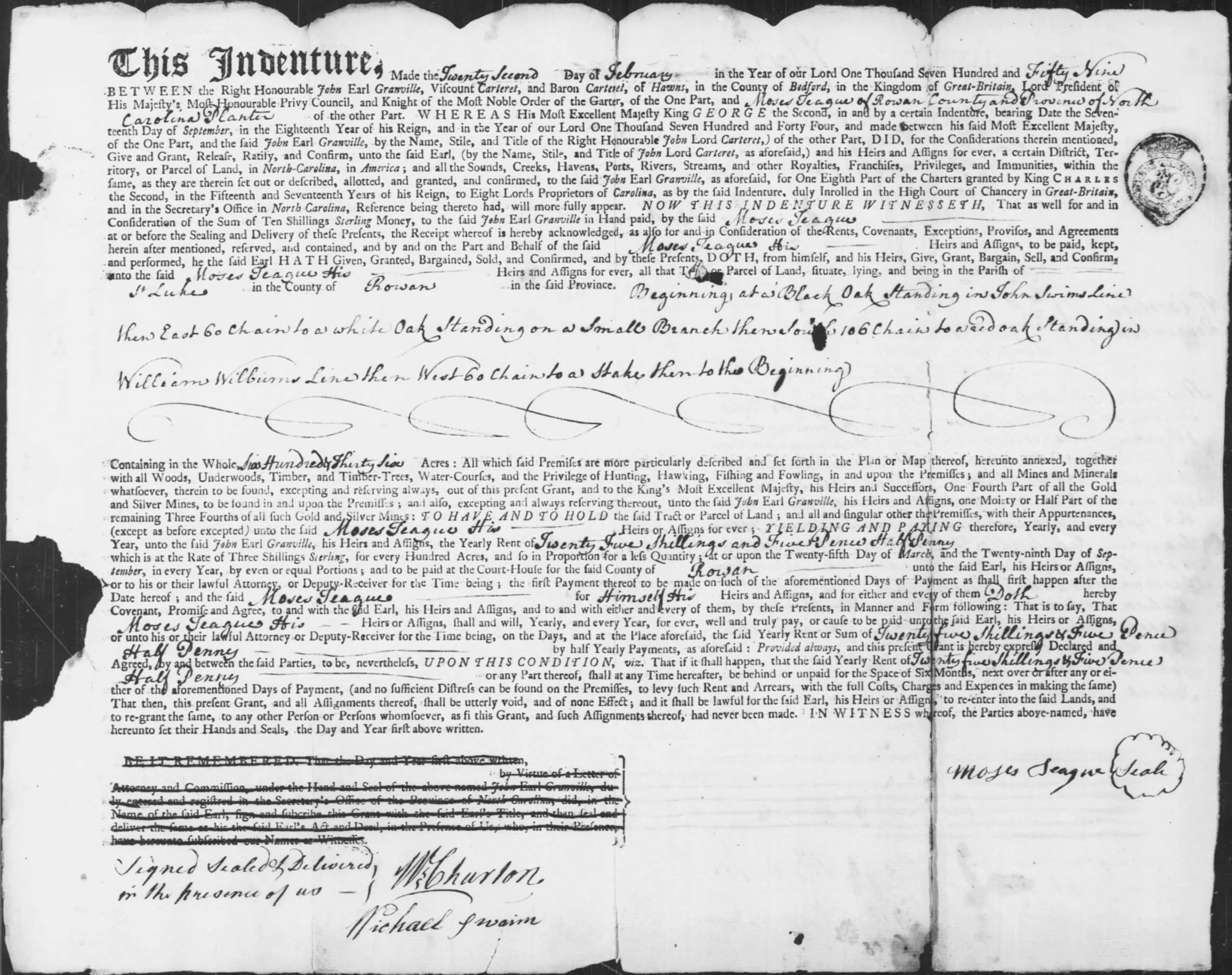
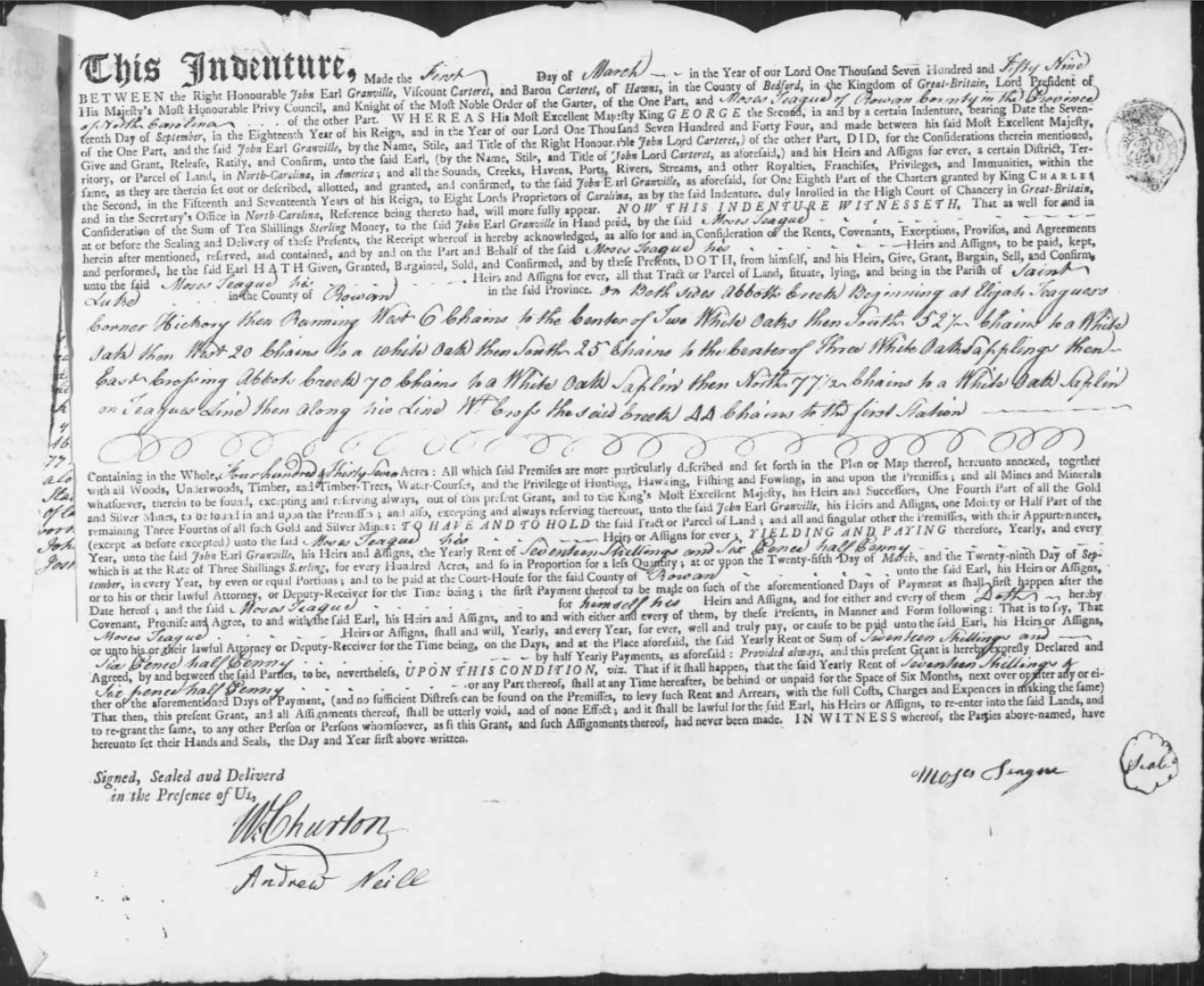
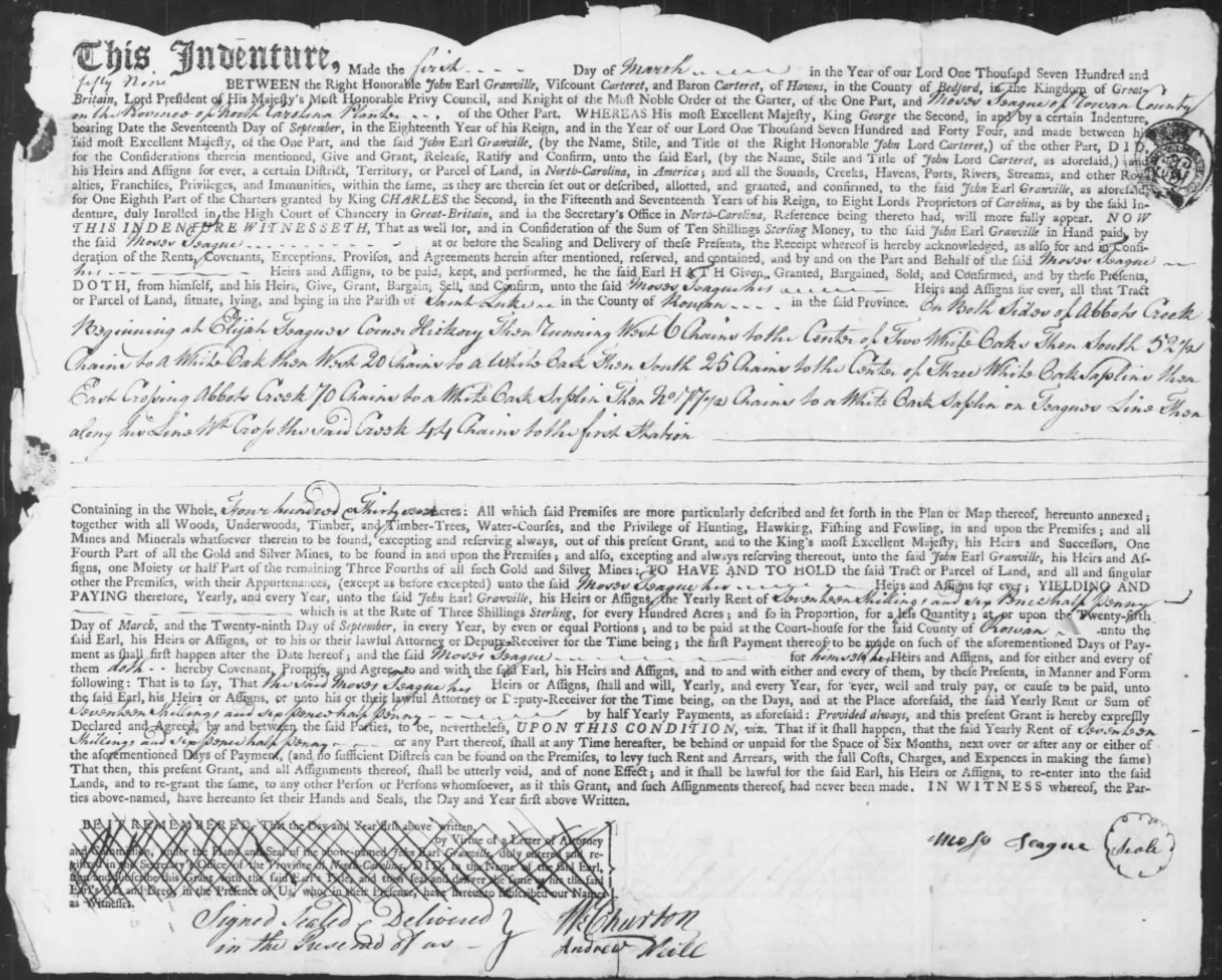
Moses married Elizabeth Loftin around 1738, with whom he had several children, including David Teague, who inherited Moses’s homestead. After Elizabeth’s death, Moses married Rachael Taylor, who is prominently mentioned in his will as the primary beneficiary during her lifetime. Moses and Elizabeth’s daughter, Charity Teague married Thomas Ray and was mother to William Ray, soldier in the War of 1812.
Moses’s will, written in 1786 and proved in 1799, provides detailed insight into his wealth, priorities, and family dynamics. It included land, livestock, household goods, and an enslaved man named Abraham, reflecting Moses’s status as a man of means during his time.
While Moses Teague’s legacy includes his contributions to settlement and agriculture, it also reflects the moral contradictions of his era. Moses enslaved at least one individual, Abraham, whom he bequeathed first to his wife Rachael and later to his son David. This practice stands in tension with his family’s Quaker connections, as many Quakers in the region were beginning to oppose slavery by the late 18th century. Moses’s life illustrates the complexities of colonial landownership and the economic realities of the period.
Moses Teague represents a critical link in the Teague family’s lineage, bridging his grandfather Edward’s pioneering settlement in Maryland and his grandson William Ray’s military servsice in the War of 1812. This multi-generational narrative highlights the family’s adaptability and contributions to early American society.
Moses Teague’s story is one of ambition, opportunity, and complexity. His substantial landholdings and role in settling the Granville District underscore his influence in colonial North Carolina, while his family’s continued prominence reflects the enduring impact of his life’s work.
Through my descent from Moses Teague, I am honored to celebrate his contributions to the settlement of the Granville District and his enduring legacy in North Carolina’s history. Membership in the Order of Founders of the Granville District underscores the importance of preserving this unique chapter of colonial America.
Additional memberships will be added as they are approved.
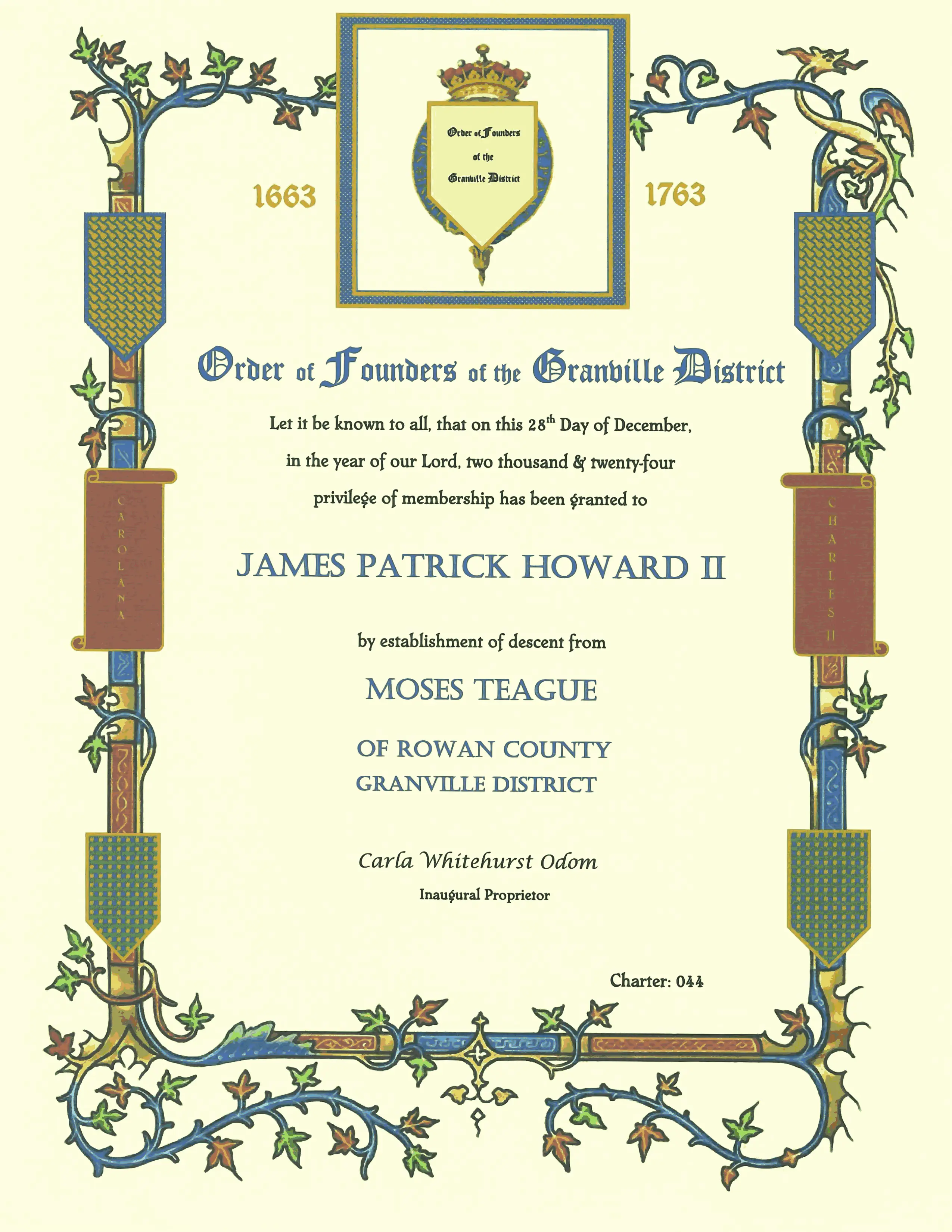
Or you can download the PDF here.